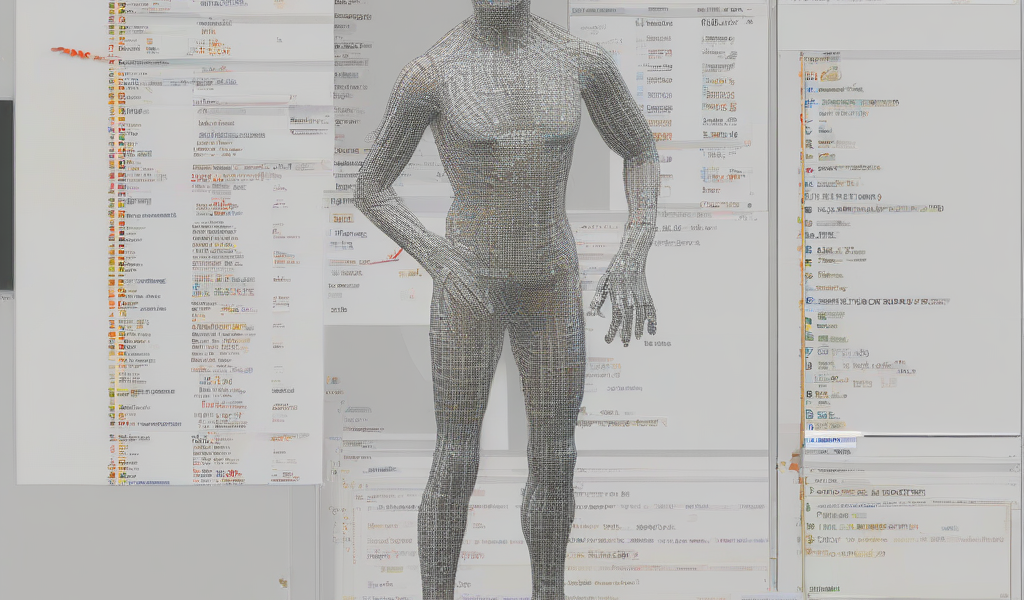Unlocking Healthcare’s Financial Landscape: Your Comprehensive Guide to a Medical Billing and Coding Degree
Unlocking Healthcare’s Financial Landscape: Your Comprehensive Guide to a Medical Billing and Coding Degree
The healthcare industry is a complex and ever-evolving landscape, demanding skilled professionals at every level. While doctors and nurses receive the lion’s share of attention, a critical role often overlooked is that of the medical billing and coding specialist. These professionals are the gatekeepers of healthcare finances, ensuring that providers receive appropriate reimbursement for their services and that patients understand their financial obligations. A medical billing and coding degree provides the essential knowledge and skills to excel in this vital field.
What is Medical Billing and Coding?
Medical billing and coding is the process of translating medical services and procedures into standardized codes used for insurance claims and patient billing. This involves assigning specific codes (based on established systems like ICD-10 and CPT) to diagnoses, procedures, and services provided to patients. These codes are then used to create accurate and compliant claims submitted to insurance companies for reimbursement. The process also involves managing patient accounts, handling denials and appeals, and ensuring the timely and accurate payment of medical bills.
Why Pursue a Medical Billing and Coding Degree?
A career in medical billing and coding offers a compelling blend of intellectual stimulation and practical application. Here are some key reasons why pursuing a medical billing and coding degree is a smart choice:
- High Demand & Job Security: The healthcare industry is constantly growing, and with it, the need for skilled medical billing and coding specialists. This translates to excellent job security and numerous career opportunities.
- Competitive Salary & Benefits: Medical billing and coding professionals enjoy competitive salaries and benefit packages, often including health insurance, paid time off, and retirement plans.
- Diverse Career Paths: A medical billing and coding degree opens doors to a variety of career paths, including roles in hospitals, clinics, physician offices, insurance companies, and even consulting firms.
- Intellectual Stimulation: The field requires a keen eye for detail, strong analytical skills, and a thorough understanding of medical terminology and insurance regulations. It’s a challenging and rewarding career that keeps you engaged and learning.
- Making a Difference: By ensuring accurate and timely billing, medical billing and coding specialists play a crucial role in the financial health of healthcare providers and the access to care for patients.
What You’ll Learn in a Medical Billing and Coding Degree Program
A comprehensive medical billing and coding degree program will equip you with a wide range of skills and knowledge. The curriculum typically includes:
- Medical Terminology: A solid foundation in medical terminology is crucial for understanding medical records and accurately assigning codes.
- Anatomy and Physiology: Basic knowledge of anatomy and physiology provides context for understanding medical procedures and diagnoses.
- ICD-10-CM Coding: Mastering the International Classification of Diseases, 10th Revision, Clinical Modification (ICD-10-CM) is essential for accurately coding diagnoses.
- CPT Coding: Understanding the Current Procedural Terminology (CPT) coding system is vital for accurately coding medical procedures and services.
- HCPCS Coding: Healthcare Common Procedure Coding System (HCPCS) codes are used for certain supplies, services, and procedures not covered by CPT.
- Medical Billing Procedures: This involves learning the intricacies of creating and submitting insurance claims, managing patient accounts, and handling denials and appeals.
- Insurance Reimbursement Methods: Understanding various insurance plans, reimbursement methodologies, and payer requirements is crucial for maximizing reimbursement.
- Compliance and Regulations: Staying up-to-date on HIPAA regulations and other compliance requirements is essential to avoid legal issues and penalties.
- Electronic Health Records (EHR) Systems: Familiarity with different EHR systems is essential for efficient medical billing and coding.
- Practice Management Software: Many programs also cover the use of practice management software to streamline billing and administrative tasks.
Types of Medical Billing and Coding Degrees
Several educational pathways lead to a career in medical billing and coding. These include:
- Associate Degree (A.A.S.): An Associate of Applied Science degree in medical billing and coding typically takes two years to complete and provides a strong foundation in the field.
- Certificate Programs: Certificate programs offer a shorter, more focused path to acquiring the necessary skills and knowledge, often taking less than a year to complete.
- Bachelor’s Degree (B.S.): While less common, some universities offer a Bachelor of Science degree in healthcare administration or a related field that incorporates medical billing and coding.
- Online Programs: Many institutions offer online medical billing and coding programs, providing flexibility for students who cannot attend traditional classes.
Choosing the Right Medical Billing and Coding Program
Selecting the right program is crucial for your success. Consider these factors:
- Accreditation: Ensure the program is accredited by a reputable organization, ensuring the quality of education and increasing your chances of employment.
- Curriculum: Review the curriculum to ensure it covers all essential aspects of medical billing and coding, including the latest coding systems and technologies.
- Faculty Expertise: Look for programs with experienced and knowledgeable instructors who have practical experience in the field.
- Job Placement Assistance: Many reputable programs offer job placement assistance, helping graduates find employment after completing their studies.
- Student Support Services: Consider the availability of student support services, such as tutoring, career counseling, and online resources.
- Cost and Financial Aid: Compare the cost of different programs and explore available financial aid options.
- Program Format: Decide whether you prefer an online, on-campus, or hybrid program based on your learning style and schedule.
Career Opportunities with a Medical Billing and Coding Degree
A medical billing and coding degree opens doors to a wide range of exciting career opportunities. Some common roles include:
- Medical Biller: Responsible for creating and submitting insurance claims, managing patient accounts, and following up on denials.
- Medical Coder: Focuses on assigning accurate ICD-10-CM, CPT, and HCPCS codes to medical records.
- Billing and Coding Specialist: Combines both billing and coding responsibilities, managing the entire revenue cycle process.
- Medical Reimbursement Specialist: Focuses on maximizing reimbursement from insurance companies by negotiating rates and appealing denials.
- Compliance Officer: Ensures that the billing and coding processes adhere to all relevant regulations and compliance requirements.
- Revenue Cycle Manager: Oversees the entire revenue cycle process, including billing, coding, and collections.
Continuing Education and Professional Development
The healthcare industry is constantly evolving, with new regulations, technologies, and coding systems introduced regularly. Therefore, continuing education and professional development are essential for staying competitive and relevant in this field. Consider these options:
- Professional Certifications: Obtaining professional certifications, such as the Certified Professional Coder (CPC) or Certified Professional Biller (CPB), can enhance your credentials and career prospects.
- Continuing Education Courses: Stay current with the latest coding updates and industry trends by taking continuing education courses offered by professional organizations.
- Workshops and Conferences: Attend workshops and conferences to network with other professionals and learn about emerging trends and technologies.
- Professional Organizations: Join professional organizations such as the American Academy of Professional Coders (AAPC) or the American Health Information Management Association (AHIMA) to stay informed and access valuable resources.
Salary Expectations for Medical Billing and Coding Professionals
The salary of a medical billing and coding professional can vary depending on factors such as experience, location, education, and certifications. However, the field generally offers competitive salaries, providing a comfortable living and financial security.
Entry-level positions typically offer salaries in a range reflecting the local market conditions and the employer. Experienced professionals with advanced certifications and leadership responsibilities often earn significantly higher salaries.
The Future of Medical Billing and Coding
The future of medical billing and coding looks bright, with continued growth and evolution expected in the field. Technological advancements, such as artificial intelligence and machine learning, are likely to automate some tasks, but the human element of medical billing and coding remains irreplaceable. The critical thinking, problem-solving skills, and understanding of complex regulations required in this field ensure that skilled professionals will continue to be in high demand.
Conclusion (Omitted as per instructions)




